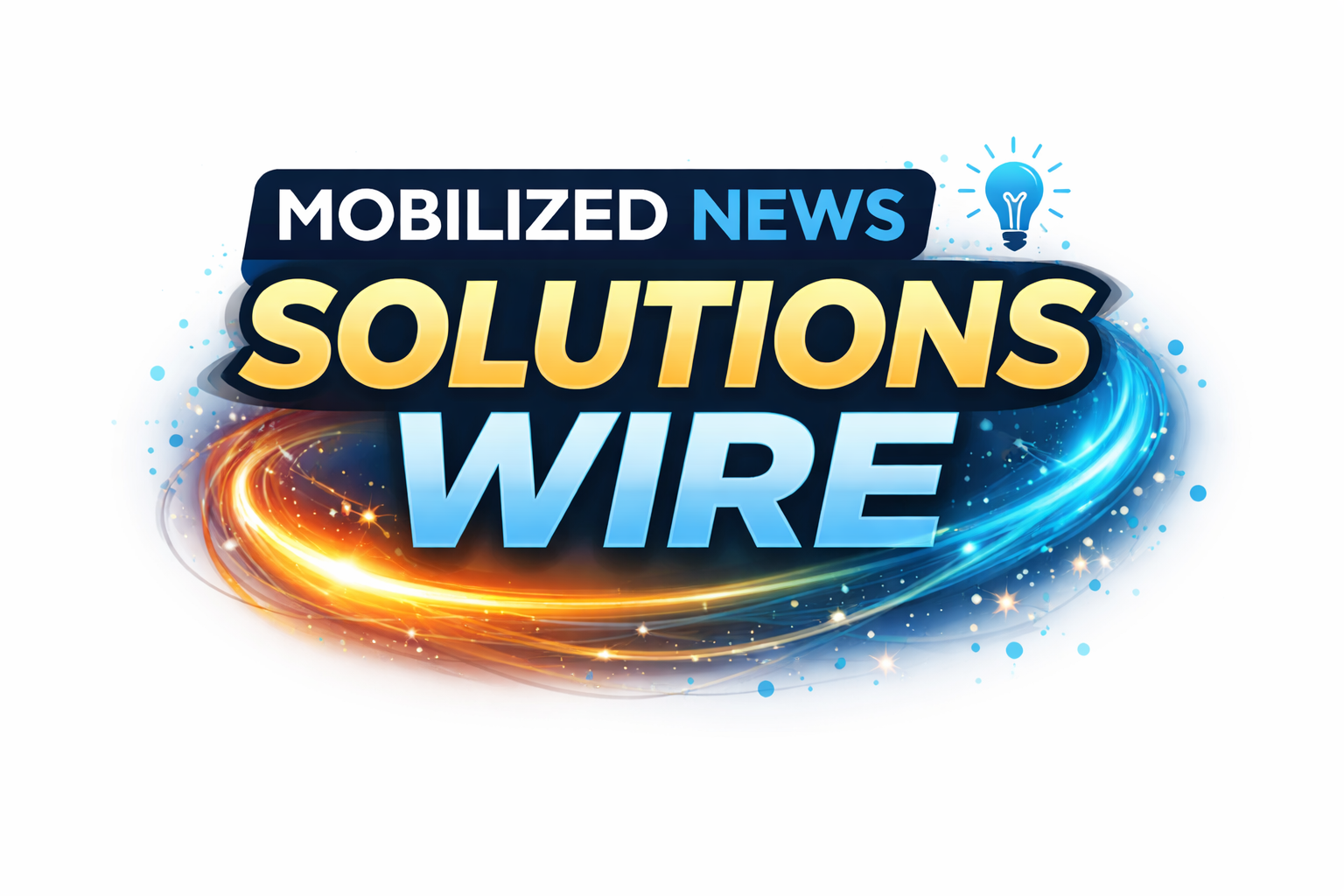Updates: Info Comm
WIRE HOME Civil Rights/Human Rights Design Clean Energy Food InfoComm Leadership Localization Planet/Public Health Materials/Resources Science Security Smarter Cities Tech Transportation
The week ending May 17, 2025
Global ICT Events and Initiatives
World Telecommunication and Information Society Day (WTISD) – May 17
Celebrated annually on May 17, WTISD aims to raise awareness about the possibilities that the use of the Internet and other information and communication technologies (ICT) can bring to societies and economies, as well as ways to bridge the digital divide. This year, events were held worldwide to highlight the importance of ICT in fostering global connectivity and development.
National Technology Day in India – May 11
India commemorated National Technology Day on May 11, marking the anniversary of the country’s technological advancements, including the successful nuclear tests in 1998. The day serves as a reminder of India’s progress in science and technology and its role in driving national development.
Infrastructure and Policy Developments
Iran Plans to Launch Three Space Bases by Year-End
Iran’s Minister of Information and Communications Technology announced plans to launch three equipped space bases—Chabahar, Salmas, and Chenaran—by the end of the current Iranian calendar year. These developments aim to enhance the country’s satellite capabilities and ICT infrastructure.
Saudi Arabia’s ICT Market Growth
Saudi Arabia’s enterprise ICT market is projected to grow from USD 12.1 billion in 2024 to USD 22.84 billion by 2030, driven by initiatives under Vision 2030. The growth is fueled by investments in digital transformation, smart city projects, and the adoption of emerging technologies like AI and IoT.
Industry Reports and Benchmarks
KnowTheChain’s 2025 ICT Benchmark
The 2025 KnowTheChain ICT benchmark revealed that major ICT companies need to improve efforts to address forced labor in supply chains. The average score among the 45 largest global ICT companies was 20 out of 100, indicating significant room for improvement in ethical sourcing and labor practices.
Regional Highlights
Papua New Guinea’s ICT Collaborations
Papua New Guinea’s Department of ICT engaged in discussions with international partners, including the United Arab Emirates and Austria, to explore collaborations in digital ID systems, cybersecurity, and digital transformation initiatives. These partnerships aim to enhance the country’s ICT capabilities and infrastructure.
The week ending May 10, 2025
Global ICT Trends & Challenges
Generative AI Faces Sustainability and Trust Gaps
Deloitte’s Australian TMT Predictions 2025 report highlights several challenges in the tech, media, and telecommunications sectors:
- Data Center Energy Consumption: Generative AI data centers are projected to consume over 8% of Australia’s electricity by 2030, prompting a push for more sustainable energy solutions.
- Gender Disparities: Women in Australia are underrepresented in AI adoption, with only 40% participating in AI-related education and 20% in the AI workforce.
- Deepfake Proliferation: Deepfake attacks are expected to double in 2025, disproportionately affecting women and eroding public trust.
- AI-Enabled Devices: Over half of Australian smartphones are anticipated to be AI-enabled by the end of 2025, extending device upgrade cycles.
ICT’s Environmental Impact in the U.S.
A study published in Environmental Sciences Europe indicates that ICT adoption in the U.S. has contributed to increased CO₂ emissions over the past three decades. The research suggests that without complementary policies, ICT may hinder environmental sustainability goals. Recommendations include incentivizing energy-efficient data centers and integrating renewable energy sources.
Regulatory & Policy Developments
EU Advances Digital Regulation
The European Commission released a final report on B2B data sharing and cloud computing contracts under the Data Act, providing guidelines to facilitate data availability while ensuring protection measures. Additionally, the EU launched a public consultation on the proposed “AI Continent” Cloud Act, aiming to bolster AI and cloud infrastructure within the region.
ICT Education & Competitions
Huawei ICT Competition 2024–2025 Global Final Approaches
Huawei’s annual ICT Competition is set to hold its global final from May 20 to May 24, 2025. The event has attracted over 960,000 students from more than 2,000 colleges and universities across 100+ countries. This year’s competition includes new tracks focusing on AI and green development, emphasizing the role of ICT in sustainable innovation.
The week ending May 3, 2025
Cybersecurity & AI Integration
- RSAC Conference 2025: The RSA Conference in San Francisco spotlighted AI’s transformative impact on cybersecurity. Cisco introduced an open-source 8-billion-parameter AI security model aimed at enhancing threat detection. Experts discussed the dual role of AI in both cyber defense and potential misuse by threat actors.
- Quantum Communication in Defense: Marine Lt. Gen. Stephen D. Sklenka emphasized the urgent need for quantum communication technologies to secure U.S. military networks against adversary intrusion. He advocated for the adoption of quantum communication to make networks “undecryptable,” highlighting the vulnerabilities of current defense networks.
Quantum Communication Breakthroughs
- Toshiba’s Quantum Messaging: Scientists at Toshiba Europe successfully transmitted quantum-encrypted messages over a 254km German commercial telecom network. This achievement marks a significant step toward practical quantum-secure communications using existing infrastructure.
Global ICT Events & Policy
- GITEX Asia 2025: Held in Singapore, GITEX Asia attracted over 5,000 exhibitors and 50,000 attendees. The event showcased advancements in AI, 5G, smart cities, and green technology, with major tech companies like Google, Microsoft, and Huawei participating.
- UK’s Cybersecurity Legislation: The UK government introduced the Cyber Security and Resilience Bill, aiming to strengthen the nation’s cyber defenses and resilience to hostile attacks. The legislation expands the remit of existing regulations and increases reporting requirements for businesses.
Digital Inclusion & Education
- Girls in ICT Day 2025: Celebrated under the theme “Bridging ALL Divides for an Inclusive Digital Transformation,” the event highlighted the importance of gender equality in ICT. It provided a platform for intergenerational dialogue and encouraged young girls to pursue careers in STEM and tech fields.
- ICT Mahidol’s Short Course: ICT Mahidol organized a short course titled “Becoming a CEO Through the Playing Lean Game,” aiming to develop students’ ICT skills and entrepreneurial mindset.
Institutional Tech Updates
- University of Minnesota’s IT Policy: The Office of Information Technology announced that, beginning June 7, 2025, it will delete files in Google Workspace that have been closed for over six months. This policy aims to manage digital storage effectively and ensure data security.
- SUNY New Paltz’s Windows 11 Upgrade: Information Technology Services at SUNY New Paltz reported that over 790 faculty and staff computers have been updated to Windows 11, with plans to continue updates through October 2025.
The week ending April 25, 2025
Major ICT Developments
WSIS+20 High-Level Event in Geneva
The World Summit on the Information Society (WSIS) marked its 20th anniversary with a high-level event in Geneva. Co-hosted by the International Telecommunication Union (ITU) and the Swiss Confederation, the summit brought together global stakeholders to assess progress in digital development and to strategize for universal connectivity. Discussions emphasized the need to bridge the digital divide, with 2.6 billion people still offline worldwide.
International Girls in ICT Day 2025 Celebrations
On April 24, the ITU celebrated International Girls in ICT Day under the theme “Girls in ICT for Inclusive Digital Transformation.” Events were held globally, including in Bishkek, Kyrgyzstan, and Nouakchott, Mauritania, featuring intergenerational dialogues and initiatives aimed at empowering girls and young women to pursue careers in ICT.
Hong Kong ICT Awards 2025 Open for Entries
The Hong Kong ICT Awards 2025 commenced its call for entries on April 22. The awards aim to recognize outstanding achievements in the ICT sector, encouraging innovation and excellence among local enterprises and talents.
Advancements in AI and Quantum Technologies
Researchers reported significant progress in AI and quantum computing:
- A breakthrough in AI memory devices could lead to faster and more efficient artificial intelligence systems.
- Developments in nanophotonic platforms have enhanced the efficiency of nonlinear-optical quantum teleportation, a step forward in quantum communication technologies.
NDMA Hosts ICT Day in Guyana
The National Data Management Authority (NDMA) in Guyana hosted an ICT Day event focused on empowering women in the tech sector. The program included interactive activities and discussions aimed at encouraging young women to envision and pursue careers in ICT, aligning with the global theme of inclusive digital transformation. (NDMA hosts ICT Day to empower women in tech sectors)
The week ending April 18, 2025
OpenAI Unveils GPT-5
OpenAI announced the upcoming release of GPT-5, featuring 1.5 trillion parameters and a new “Canvas” feature for rendering React/HTML code. This advancement is set to enhance AI capabilities in software development and content creation.
Google’s Gemini 2.0 Enhances Search
Google integrated Gemini 2.0 into its search engine, resulting in a 528% increase in AI-generated overviews. This integration aims to provide more comprehensive and accurate search results.
World Quantum Day Highlights Quantum Advancements
World Quantum Day, celebrated on April 14, emphasized the importance of quantum science and technology. Events focused on quantum computing’s potential and the need for post-quantum encryption to safeguard digital privacy.
Transformation of Homer City Power Plant
Plans were unveiled to convert the former Homer City coal-fired power plant in Pennsylvania into a 4.5 GW data center campus powered by natural gas. This $10 billion project aims to support AI and high-performance computing demands.
AI-Ready Data Center in Jakarta
SM+ commenced construction of SMX01, an AI-ready data center in Jakarta’s Central Business District. The facility is designed to meet the growing demand for AI and cloud services in Southeast Asia.
Papua New Guinea’s Digital ID Initiative
Papua New Guinea’s Department of ICT announced the development of “SevisPass,” a digital ID system aimed at enhancing digital government services and infrastructure.
Egypt’s Investment in ICT Sector
Egypt allocated EGP 13 billion for the ICT sector in its FY2025 budget, focusing on expanding digital infrastructure and services.
UK’s Cybersecurity and Resilience Bill
The UK government introduced the Cybersecurity and Resilience Bill, aiming to strengthen national cybersecurity frameworks and promote resilience against digital threats.
The week ending April 11, 2025
Satellite Communications
- China Launches New Communication Technology Test Satellite
On April 11, 2025, China successfully launched a new communication technology test satellite from the Xichang Satellite Launch Center in Sichuan Province. The satellite is intended to conduct multi-band and high-speed communication technology validation tests.
International Collaborations
- Trilateral Talks on Science and Technology
South Korea’s Vice Science and ICT Minister, Kang Do-hyun, participated in a trilateral meeting with counterparts from Japan and China in Suzhou, Jiangsu Province, China, on April 11, 2025. The discussions focused on enhancing cooperation in science and technology among the three nations.
Corporate Developments
- Sify Technologies Announces Upcoming Financial Results
Sify Technologies Limited, a leading digital ICT solutions provider in India, announced plans to release its financial results for the fiscal year 2024-25 on April 19, 2025. The company will also host a conference call to discuss the results. - Boumarang, Inc. Acquires Wavedrone Maritime Drone Technology
Boumarang, Inc., known for its hydrogen-powered autonomous aerial drone systems, acquired the intellectual property rights to the Wavedrone platform from Shore House IVF. This $3.5 million stock-based acquisition marks Boumarang’s expansion into maritime drone technology.
Research and Innovation
- Technology in Space Prize Recipients Announced
Startups RedPoint Oncology and Fourier were awarded the Technology in Space Prize through the MassChallenge accelerator program. RedPoint Oncology aims to utilize microgravity conditions on the International Space Station (ISS) to test new cancer therapeutics, while Fourier plans to test radiation-shielding materials for electronic devices in space. - Advancements in Parkinson’s Disease Research Using CRISPR
Researchers at Northwestern Medicine identified new key genes associated with Parkinson’s disease using CRISPR technology. These findings could lead to novel treatment opportunities for Parkinson’s and related neurodegenerative disorders.
Study uncovers a brain circuit linked to the intensity of political behavior
People diagnosed with various mental health disorders can sometimes start engaging in intense political behavior, such as violent protests, civil disobedience and the aggressive expression of political views. So far, however, the link between political behavior and the brain has been rarely explored, as it was not viewed as central to the understanding of mental health disorders.
Simultaneously burying broadband and electricity could save small towns big money
When it comes to upgrading electrical and broadband infrastructure, new research from the University of Massachusetts Amherst shows that a “dig once” approach is nearly 40% more cost effective than replacing them separately.
The Week ending April 4, 2025
Broadcasters Highlight Advances in NextGen TV at 2025 NAB Show
At the 2025 National Association of Broadcasters (NAB) Show in Las Vegas, broadcasters and technology companies showcased significant advancements in NextGen TV (ATSC 3.0). Now accessible to 76% of U.S. households across 78 markets, NextGen TV offers enhanced features such as High Dynamic Range (HDR) video and immersive Dolby Atmos audio. Companies like Gray Media are implementing cutting-edge enhancements, including HDR10+ and Dolby Vision for live events. Over two dozen global companies, including AT&T Business and Sinclair/ONE Media, presented innovations in smart broadcasting, emergency alert systems, and AI-based services like real-time translations. Consumer electronics brands such as Samsung and Sony displayed a range of NextGen TV sets and upgrade receivers.
Charter Communications Announces Tech Hub in Stamford Headquarters
Charter Communications, headquartered in Stamford, Connecticut, unveiled plans to establish the Stamford Tech Hub at its Washington Blvd. facility. This initiative aims to bolster the city’s workforce development by offering free technology-focused classes to residents, with a particular focus on underserved and marginalized populations. Charter is investing $5 million over ten years for programming and an additional $3 million for facility construction and employee support. The nonprofit DAE will conduct the classes, which include a one-day workshop, a three-week career exploration, and a six-month digital immersion program. Approximately 120 students are expected to enroll in the first year.
European Union Initiates Secure Communication Satellite System
The European Union signed a new space contract in Brussels to develop its own secure communication satellite system, akin to existing networks like Starlink. This initiative aims to enhance the EU’s autonomous communication capabilities, ensuring secure and reliable connectivity across member states. The project reflects the EU’s commitment to advancing its space and communication infrastructure.
MDA Space to Acquire SatixFy Communications
MDA Space announced its intention to acquire SatixFy Communications, aiming to enhance its satellite communication capabilities. This strategic move is expected to bolster MDA’s position in the global satellite communications market, enabling the company to offer more comprehensive and advanced services to its clients.
The week ending March 28, 2025
European Union’s €1.3 Billion Investment in Digital Technologies
The European Commission unveiled plans to invest €1.3 billion (approximately $1.4 billion) through the Digital Europe Programme for 2025 to 2027. This funding aims to advance artificial intelligence, cybersecurity, and digital skills across member states, reinforcing Europe’s commitment to technological sovereignty and innovation.
Launch of Kenya’s National Artificial Intelligence Strategy
Kenya’s Ministry of ICT announced the upcoming launch of the National Artificial Intelligence Strategy 2025-2030. Scheduled for March 27, 2025, at the Kenyatta International Convention Center, this strategy outlines Kenya’s approach to integrating AI technologies across various sectors to drive economic growth and improve public services.
Albertsons Companies’ Digital Transformation Initiatives
Albertsons Companies detailed its digital transformation strategy, focusing on enhancing customer experiences through advanced technologies. The initiative includes the implementation of AI-driven analytics, expansion of e-commerce platforms, and modernization of supply chain operations to increase efficiency and responsiveness.
Microsoft Adjusts AI Data Center Investments
Microsoft announced a strategic reduction in its AI data center leases, citing concerns over potential oversupply and the need to optimize investments in artificial intelligence infrastructure. This decision reflects a cautious approach to balancing expansion with sustainable growth in the rapidly evolving AI sector.
Arelion Expands AI-Ready Network in Texas
Arelion revealed the expansion of its network infrastructure in Texas, introducing AI-ready diverse mesh routes to enhance connectivity for data centers and cloud services. This development aims to support the growing demand for high-capacity, low-latency networks essential for AI applications and data-intensive operations.
Nscale and InfraPartners Collaborate on Norwegian AI Data Center
Nscale and InfraPartners announced a partnership to construct a 60MW AI data center in Norway. Powered by renewable hydroelectric energy, the facility underscores a commitment to sustainable practices in meeting the increasing computational demands of AI technologies.
Telecommunications and Connectivity:
- Verizon Introduces Satellite Messaging for Android: Verizon launched satellite messaging capabilities for select Android devices, enabling users to send texts from areas lacking cellular coverage. This advancement aims to enhance communication reliability in remote locations.
Cybersecurity and Data Privacy:
- Colt Technology Services Completes Quantum Encryption Trial: Colt Technology Services successfully conducted a trial of quantum-secured encryption across its optical network. This initiative is designed to bolster security measures against prospective quantum computing threats, ensuring enhanced data protection for businesses.
- Email Identified as Leading Security Risk in Healthcare: A report highlighted that email remains the primary security vulnerability within the healthcare sector, underscoring the necessity for robust cybersecurity protocols to safeguard sensitive patient information.
Digital Infrastructure and Grid Modernization:
- Siemens Showcases Grid Transformation Technologies: At DISTRIBUTECH 2025 in Dallas, Texas, Siemens presented its latest advancements in grid modernization. The showcased technologies aim to accelerate the digital transformation of energy infrastructure, enhancing efficiency, reliability, and sustainability.
Regulatory and Compliance Updates:
- Urgently Notified of Nasdaq Non-Compliance: Urgently Inc., a provider of digital roadside and mobility assistance services, received notification from Nasdaq regarding non-compliance with continued listing standards. The company intends to submit a compliance plan to address the issue.















